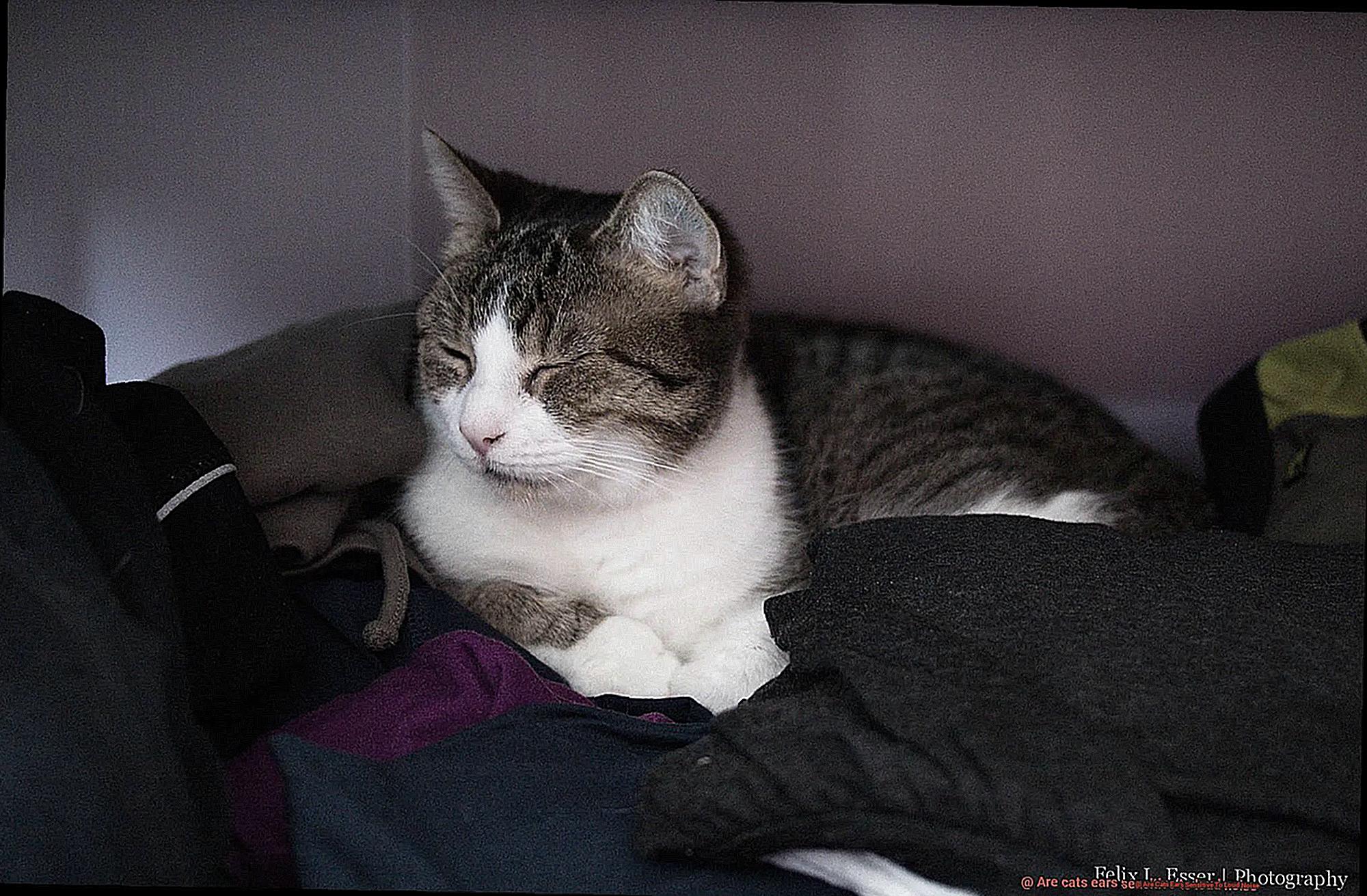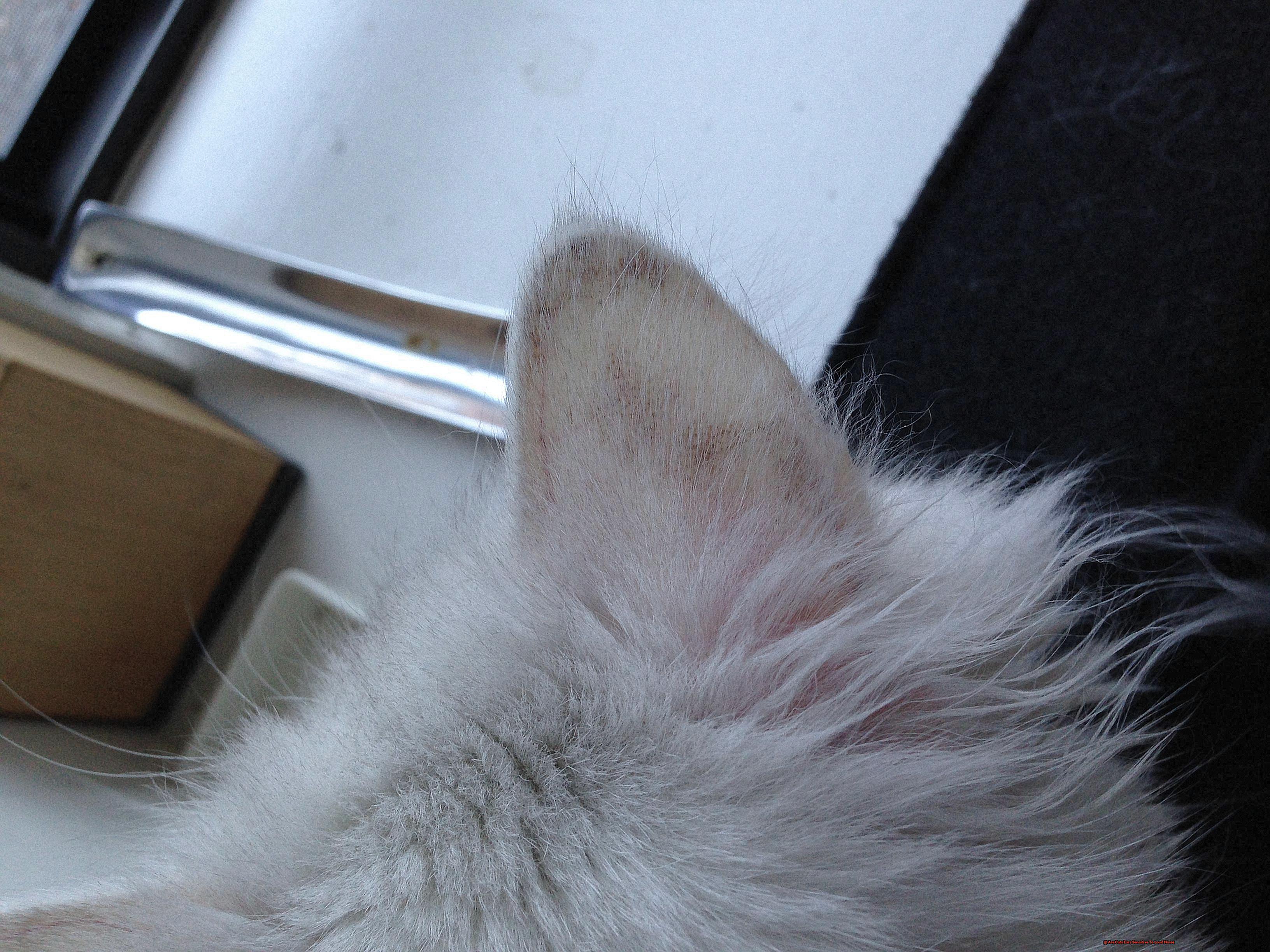Picture this: you’re in the middle of a deep sleep when suddenly, a loud noise jolts you awake.
Your cat, on the other hand, doesn’t seem fazed at all. In fact, they might not even have budged from their cozy spot.
This is because cats have incredibly sensitive ears that can pick up even the tiniest of sounds. But why are their ears so sensitive?
And what does it mean for our furry companions? In this blog post, we’ll uncover the secrets behind cats’ super-powered hearing and how it affects them in their daily lives.
So, get ready to learn more about your feline friend’s ears and how to keep them safe from loud noises.
Are Cats Ears Sensitive To Loud Noise?
Contents
Cats are known for their keen senses, and their ears are no exception. With the ability to hear sounds at a much higher frequency than humans, cats rely on their sensitive ears to navigate their surroundings and communicate with each other. However, this sensitivity also makes them vulnerable to the negative effects of loud noises.
In this blog post, we will explore the potential consequences of loud noise exposure for cats and provide tips on how to protect your furry friend’s delicate ears.
The Impact of Loud Noises on Cats:
Just like humans, cats can experience a range of reactions to loud noises. For some, it may cause mild discomfort and anxiety, while for others it can trigger extreme fear and even physical harm. This is because loud noises can be perceived as a threat to a cat’s safety, triggering their natural fight or flight response.
Some common signs that a cat is experiencing distress from loud noises include hiding, crouching low to the ground, dilated pupils, flattened ears, and increased heart rate. These reactions can vary depending on the individual cat’s personality and past experiences with loud noises.
Long-Term Consequences:
Exposure to loud noises over a prolonged period can also lead to long-term hearing damage in cats. This is especially true for indoor cats who are constantly exposed to loud household noises such as vacuum cleaners, blenders, and televisions. While cats may appear indifferent to these noises, they can still cause harm to their sensitive ears.
Protecting Your Cat’s Ears:
As responsible pet owners, it is our responsibility to protect our furry friends from potential harm and discomfort caused by loud noises. Here are some tips on how to do so:
- Provide a quiet space: During times of increased noise, such as fireworks or thunderstorms, it’s essential to provide your cat with a quiet and safe space to retreat to. This can be a designated “safe room” or a hiding spot where they feel secure.
- Use calming products: There are products available specifically designed to help reduce noise sensitivity in cats, such as earplugs made for pets or calming pheromone sprays. Consult with your veterinarian to find the best option for your cat.
- Desensitization training: Gradually exposing your cat to loud noises in a controlled setting and rewarding them for remaining calm can help reduce their fear response over time.
Understanding the Fight or Flight Response in Cats
As cat owners, we all know that our feline friends have a strong sense of hearing. They can hear things that we humans can’t, and their ears are always on high alert, ready to pick up any sound. But have you ever wondered how this heightened sense of hearing affects them? How do they react when they hear loud or sudden noises? Understanding the fight or flight response in cats can help us better protect and care for our furry companions.
The Science Behind Cats’ Hearing
Cats have an amazing sense of hearing, thanks to their specialized ears. Their ear structure allows them to capture and amplify sound, making them extremely sensitive to even the slightest noise. In fact, cats can hear frequencies up to 60,000 Hz, compared to humans who can only hear up to 20,000 Hz. This means that cats can hear sounds that are three times higher than what we can detect.
Their ears also have a unique structure called the pinna, which helps them locate the source of a sound. This is why cats can easily pinpoint the direction of a noise, making them excellent hunters in the wild.

The Fight or Flight Response in Cats
Due to their heightened sense of hearing, cats can easily become overwhelmed by loud or sudden noises. This triggers their fight or flight response, which is a natural reaction to perceived danger or threat. Just like humans, cats have an autonomic nervous system that controls this response.
When a cat experiences a loud noise, their brain sends signals to release adrenaline and cortisol into the body. These hormones increase heart rate and blood pressure and prepare the body for action. In the wild, this response is crucial for survival, allowing cats to flee from potential predators or defend themselves if needed.
However, in domesticated cats, this response can lead to stress and anxiety if not managed properly. Loud noises can cause them to become hyper-vigilant and on edge, making them more likely to react aggressively or run away.
Managing the Fight or Flight Response in Cats
As responsible cat owners, it’s important to understand how loud noises can impact our furry friends and take steps to minimize their stress and anxiety. Here are some tips to help you manage the fight or flight response in your cat:
The Complex Ear Structure of Cats

Today, we’re diving into the fascinating world of a cat’s ear structure. Have you ever wondered how your furry friend can hear that tiny mouse scurrying across the room or how they seem to know when you’re opening a can of tuna from the other room? Well, it all comes down to their complex and highly developed ears.
Let’s start with the basics. Cats have a vertical ear canal, which helps them pinpoint the exact location of sound sources. This is why they can effortlessly track moving objects with their ears, making them efficient hunters. But it’s not just the shape of their ears that makes them great hunters; it’s also the specialized features of their outer ear.
Have you ever noticed the unique shape of a cat’s ears? The curved edge at the top acts as a funnel, directing sound waves into the ear canal. And speaking of ear canals, did you know that cats can hear ultrasonic sounds that humans can’t even perceive? It’s all thanks to their highly sensitive hair cells in their ears, which can detect even the slightest vibrations in the air.
But that’s not all – cats also have a movable outer ear or pinna, which allows them to rotate their ears independently. This gives them a 360-degree range of hearing, making it nearly impossible for anything to sneak up on them. It’s no wonder they seem to have eyes in the back of their heads.
Moving on to the middle ear, cats have three small bones known as ossicles that amplify and transmit sound waves from the eardrum to the inner ear. And speaking of the inner ear, this is where all the magic happens. Sound is converted into electrical signals and sent to the brain for processing through the cochlea and vestibular system.
Now, here’s something important to note – cats have delicate and intricate ear structures that make them sensitive to loud noises. Exposure to loud sounds can cause damage to their ears, leading to hearing loss or other health issues. As responsible pet owners, it’s crucial to be aware of this and take precautions to protect our feline friends from loud noises.
How Loud Noises Affect Cats
Cats have long been known for their incredible hearing abilities. From their vertical ear canal that helps them pinpoint even the slightest of movements to their 360-degree range of hearing, it’s no surprise that these furry creatures can hear a pin drop from miles away. But what happens when those sounds aren’t just the chirping of birds or the scampering of mice? What happens when our feline friends are exposed to loud noises?
As a cat owner, it’s important to understand the significant impact that loud noises can have on our beloved pets. While it may seem like just a minor inconvenience to us, loud noises can actually be extremely stressful and even painful for cats. Here are some important things to know about how loud noises affect cats:
The sensitive hearing of cats:
Cats have an incredibly acute sense of hearing, allowing them to detect sounds at a much higher frequency than humans. This means that they can hear even the tiniest of movements and locate prey with ease. However, this also means that they are more susceptible to loud noises.
What counts as a loud noise for cats?
While we may consider certain sounds to be just background noise, they can be extremely overwhelming for cats. Fireworks, thunderstorms, and loud music are common sources of loud noise that can affect our feline friends. But it’s not just the loudness of the noise that matters – the duration and frequency are also important factors. A sudden, short burst of noise may startle a cat, but prolonged exposure to loud noises can cause serious harm.
The physical and behavioral effects of loud noises:
Have you ever noticed your cat flattening their ears against their head or covering them with their paws when there’s a loud noise? This is their natural instinct to protect their sensitive ears. Prolonged exposure to loud noises can cause permanent damage to a cat’s hearing, leading to loss of hearing or hypersensitivity to sound. This can also trigger negative behavioral changes, such as aggression, hiding, or excessive grooming.
Some cats are more susceptible than others:
Just like humans, some cats are more sensitive to loud noises than others. Breeds like Siamese and Devon Rex are known for their heightened sensitivity to sound due to their genetic makeup. Older cats may also be more vulnerable to noise sensitivity. Additionally, cats with pre-existing medical conditions, such as ear infections, may be even more affected by loud noises.
Common Sources of Loud Noises for Cats
As cat owners, we all want our furry companions to be happy and comfortable in their surroundings. However, there are certain factors that can cause distress and discomfort for our cats, one of them being loud noises. While we may not think twice about the noises around us, they can have a significant impact on our feline friends. In this section, we will discuss the reasons why loud noises can be distressing for cats and provide a list of common sources of these noises.
Sensitive Hearing in Cats
Cats have an incredible sense of hearing, with the ability to hear sounds at a much higher frequency than humans. This is due to their wider range of hearing, which allows them to hear sounds up to 64,000 Hz compared to humans who can only hear up to 20,000 Hz. This means that loud noises that may not bother us can be extremely uncomfortable for cats.
Fireworks
Fireworks are a common source of loud noises that can affect cats. The high-pitched sounds emitted by fireworks can be distressing for cats and may cause them to hide or try to escape in search of safety.
Thunderstorms
Thunderstorms can also be a source of anxiety and fear for cats due to the loud claps of thunder and flashes of lightning. The sudden changes in air pressure and static electricity can also cause discomfort for our feline friends.
Construction Work
Renovations or construction work in the home can be overwhelming for cats due to the constant banging and drilling noises. This can cause them to become stressed and anxious, leading to behavioral issues such as urinating outside of the litter box.
Loud Music or Parties
Loud music or parties in the home can also be distressing for cats. The combination of loud music, unfamiliar voices, and sudden movements can be overwhelming for them. It is important to provide a safe and quiet space for your cat during these events.
Household Appliances
Even everyday household appliances such as vacuum cleaners, blenders, and hairdryers can cause discomfort for cats due to their loud noises. These sounds can be painful to their sensitive ears and may cause them to run away or hide.
Tips for Protecting Your Cat from Loud Noises
We want to do everything in our power to keep them safe and comfortable, and that includes protecting their sensitive ears from loud noises. Whether it’s fireworks, thunderstorms, or even household appliances, loud noises can cause stress and discomfort for cats. As an expert on this topic, I have compiled some tips and information to help you create a calm and safe environment for your cat when they are exposed to loud noises.
Cats have highly sensitive hearing, with the ability to detect sounds up to 64,000 Hz – much higher than humans. This means that loud noises can be even more overwhelming for cats than they are for us. In fact, loud and sudden noises can cause cats to become anxious and stressed. It is important to be aware of this sensitivity and take precautions to protect your cat’s ears from potential damage.
Identifying and Minimizing Loud Noises in Your Home:
The first step in protecting your cat from loud noises is identifying the sources of these sounds in your home. Common culprits include fireworks, thunderstorms, construction work, and household appliances such as vacuum cleaners or blenders. Once you have identified these sources, try to minimize your cat’s exposure to them. For example, if you know your cat is afraid of fireworks, keep them indoors during holidays or events when fireworks are likely to be set off.
Creating a Safe Space for Your Cat:
During times of increased noise, it is important to provide a safe and comfortable space for your cat to retreat to. This could be a quiet room in the house or a cozy hiding spot where they feel secure. Make sure this space is equipped with their favorite toys and blankets to create a soothing environment for them.
The Power of Calming Background Noise:
Playing soothing background noise, such as calming music or white noise, can also help drown out loud noises and provide a sense of security for your cat. This can create a more peaceful environment and help reduce their anxiety.
Desensitization Training for Cats with Noise Sensitivity
As cat owners, we all know that our feline friends can be easily startled by loud noises. But did you know that some cats are more sensitive to loud noises than others? These sensitive cats can experience extreme stress and anxiety when exposed to loud sounds, which can lead to behavioral issues and even physical health problems.
But fear not, because desensitization training is here to help. As an expert in this field, I have seen firsthand the positive effects of this training on noise-sensitive cats. In this blog post, I will explain the process of desensitization training for cats with noise sensitivity and provide you with valuable tips and insights.
What is Desensitization Training?
Desensitization training is a behavior modification technique that aims to reduce or eliminate a cat’s fear or sensitivity to a specific noise. This type of training involves gradual exposure to the noise in a controlled and safe environment, starting with a low volume and gradually increasing it over time. The goal is to help the cat associate the noise with something positive, such as treats or playtime, instead of fear or anxiety.
Step 1: Identify the Noise That Triggers Your Cat
The first step in desensitization training is to identify the specific noise that triggers your cat’s fear or anxiety. Common triggers include thunderstorms, fireworks, vacuum cleaners, or even loud music. Once you have identified the trigger, you can start working on creating a safe and controlled environment for your cat.
Step 2: Consult a Professional
It is crucial to consult a certified animal behaviorist or veterinarian before starting desensitization training for your cat. They can guide you on how to properly conduct the training and provide support throughout the process. They may also recommend medication to help with your cat’s anxiety during the training.
Step 3: Start Slow and Be Consistent
Consistency and patience are key when it comes to desensitization training. Start by playing the noise at a low volume and gradually increase it over time. It is essential to go at your cat’s pace and not push them too quickly, as this can worsen their fear or anxiety. Remember that this process can take weeks or even months, so be patient and consistent with your training.
Conclusion
In conclusion, it is clear that cats have incredibly sensitive ears that are designed to pick up even the slightest sounds.
However, this sensitivity also makes them vulnerable to loud noises, which can cause discomfort and potential hearing damage. As responsible pet owners, it is important to be mindful of our cat’s surroundings and protect them from excessive noise levels.
So next time you turn up the volume on your speakers or vacuum cleaner, remember to consider your feline friend’s delicate ears.






